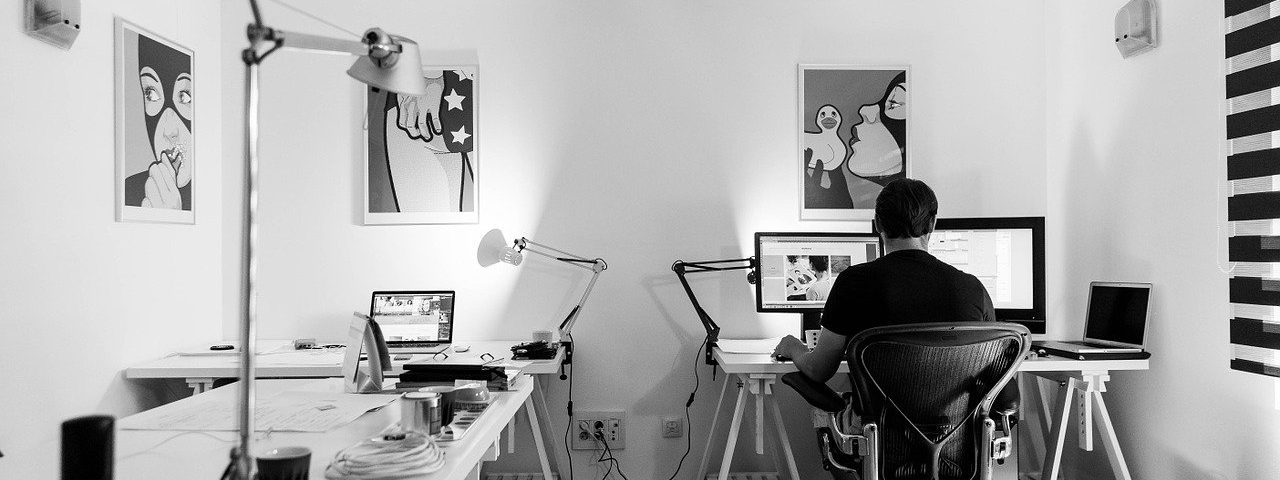
Three tips to boost customer engagement with examples
August 4, 2020
Making the right call: Contact centres in the new normal
August 11, 2020Lessons learned from the move to remote working – Interview with Dean Robison of ServiceNow
Today’s interview is with Dean Robison who is the SVP of Global Technical Support at ServiceNow. Dean joins me today to talk about his experience of moving 1,000 employees spread out over 9 locations around the globe to remote working, his experience through the pandemic so far, what’s gone well, what’s not gone so well, what they have learned and what they are focusing on going forward.
This interview follows on from my recent interview – Four key factors that are framing the challenges for organisations going forward – Interview with Jo Causon of The Institute of Customer Service – and is number 353 in the series of interviews with authors and business leaders that are doing great things, providing valuable insights, helping businesses innovate and delivering great service and experience to both their customers and their employees.
NOTE: A big thank you goes out to the folks at Amplexor for sponsoring my podcast for the coming month.
Amplexor is preparing to launch a really exciting virtual series called: Ignite Revenue Through Content which will feature leading speakers and thinkers in short, punchy and thought-provoking bi-monthly episodes exploring and highlighting insights and best practices of how to leverage Content as a strategic differentiator.
It’ll run from August through mid-December and kicking it off on August 20th will be yours truly talking about “Unleash(ing) your Inner Punk: a Rebellious Take on Customer Engagement”. I think the session that we have organised will be awesome, it’s a real honour and I’m really looking forward to it.
So, go to Amplexor.com to find out more and register.
Here’s the highlights of my chat with Dean:
- When he is not leading support for ServiceNow, Dean is a goat farmer and has just over 70 dairy goats.
- On March 9th, ServiceNow had nine different support centers dotted around the world with about 1,000 people. Then overnight, they were in about 1,000 different homes and apartments around the world as they moved to remote working.
- This is a marathon, it is not a sprint.
- The first thing they focused on was getting people productive, in place and connected. However, they quickly found out that not every country’s infrastructure is the same.
- They also realized that their expense policy wasn’t necessarily written to support their rapid deployment into people’s homes.
- For example, in Hyderabad, where one of their larger support centres is located, many of their employees rely on public transportation. However, getting monitors home using public transportation is not really an option. So, they had to figure out how they could expense an Uber so that people could get home safely with all the appropriate gear.
- The big challenge is taking care of people particularly around mental health and fatigue challenges.
- It can be hard to figure out how to support people when they are working remotely. Or, how do you recognize somebody’s having a hard time? It takes empathy that you try to hone as a leader but you have to now put that on steroids.
- This situation is requiring them to redesign their whole employee experience. While some of it is very intentional a lot of it is getting done on the fly.
- We’re trying to organise around predicted demand and instill some structure so people can depend on a time block that they are required to work. That means they can organise their day allowing them to go work out, re-energize, take a walk, go grab some lunch etc.
- We’re trying to buffer our employees with a little bit more structure so they can plan and schedule their days.
- We’re going the opposite way of trying to replicate the stability of an office environment from our homes.
- We need to start talking about leadership, management or manager experience.
- Bill McDermott came in last year as CEO and instigated a lot of investment in leadership and management development.
- That has set them up very well to cope with the pandemic.
- As it has turned out…..right now we’ve never been more productive. If you look at our case handling productivity measures, if you look at our CSAT scores..…we’ve never had a better quarter than the one we just had.
- To help ourselves we’ve also really doubled down on our self service techniques. Because customers, you know, they don’t want to call support.
- One thing that has really helped and by sheer coincidence was on their roadmap is the deployment of a mobile support interface so that customers can get updates without being at their computer.
- Dean’s best advice:
- Support is fundamentally a people business. So, enable and take care of your people. Make sure that they are connected, informed, that they’ve got all the tools and all of the information they need at their fingertips so that they can provide that great experience.
- Next, listen to your customers. Ask questions like: What more can we be doing for you? What do you want us to do differently now that we’re all kind of stuck in this environment? And, listen to them? Let them guide you on to what should be prioritized or what should be tweaked.
- Right now we are focusing on tackling and getting in front of this whole concept of proactive support and attracting the right sort of talent.
- 90% of all the problems in service probably occur in the gaps between teams and functions.
- Dean’s Punk CX word(s): Disruptive. Knock the socks off.
- Dean’s Punk CX brand: Four Seasons.
About Dean
 Dean Robison is the SVP of Global Technical Support at ServiceNow. Dean has over 20 years of experience in Silicon Valley, most recently as the Chief Customer Officer at InsideSales.com and a 13 year run at Salesforce with leadership roles in professional services, customer support and M&A integration. Dean has an MBA from Santa Clara University and a B.S. in Systems Engineering from the U.S. Naval Academy. Dean spent 10 years in uniform as an artillery officer in the United States Marine Corps.
Dean Robison is the SVP of Global Technical Support at ServiceNow. Dean has over 20 years of experience in Silicon Valley, most recently as the Chief Customer Officer at InsideSales.com and a 13 year run at Salesforce with leadership roles in professional services, customer support and M&A integration. Dean has an MBA from Santa Clara University and a B.S. in Systems Engineering from the U.S. Naval Academy. Dean spent 10 years in uniform as an artillery officer in the United States Marine Corps.
Check out ServiceNow, say Hi to them and Dean on Twitter @servicenow and @garlicdr and feel free to connect with Dean on LinkedIn here.
Image by tookapic from Pixabay





